The way we use our mobile devices is significantly influencing our everyday lives, as evidenced by the remarkable surge in global app downloads, which reached an astonishing 255 billion in 2022—a notable 11% increase from the previous year. This growth has primarily been fueled by emerging markets such as China, India, and the United States, while some established markets experienced a minor downturn. Alongside this rise in downloads, users are dedicating more time to apps, averaging about five hours daily. This trend is primarily attributed to the popularity of streaming platforms like Netflix and Disney+.
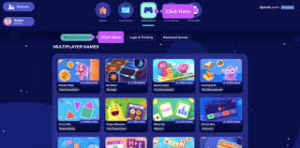
Gaming applications remain a dominant force within the mobile ecosystem; despite a 5% decrease in consumer spending that resulted in $110 billion for 2022, interest in games has not waned. In fact, downloads reached an all-time high of 90 billion. What’s particularly intriguing is how games are adapting to fulfil social needs: over two-thirds of the leading games in 2023 incorporate some form of social interaction—ranging from real-time player-versus-player competitions to various collaborative elements—highlighting a growing desire for connection through gaming experiences.
These developments underscore that mobile applications are evolving beyond mere entertainment; they are becoming vital spaces for community engagement and social interaction. To explore this phenomenon further, we analysed some of the most successful games that have enhanced their user engagement through innovative social features. Before delving into specific examples, it’s essential to understand what social user engagement entails and why it is increasingly becoming a focal point for mobile apps and games alike.
Understanding Social Features and Their Role in Growth
Social features are the interactive components that foster a vibrant community of users, much like the social media apps we frequently use, such as Instagram, Twitter, Facebook, and TikTok. These elements can be seamlessly integrated into gaming experiences to enhance user engagement.
Take activity feeds, for instance; this feature allows players to share their in-game experiences while also keeping tabs on the progress of others. Beyond just sharing achievements, activity feeds can act as a support channel where community managers engage with users to resolve issues or provide essential updates.
Another critical social feature is in-game chats. By enabling players to communicate within the game itself, you create an immersive experience that eliminates the need for them to switch between apps for messaging. This functionality allows users to easily share scores with friends or connect with new players at the touch of a button.
Push notifications also significantly enhance user interaction. Much like notifications on social media platforms, these alerts inform players about various activities within the game. Whether they’ve been mentioned in a post or comment, it’s their turn to play, or if they’ve received a challenge or gift from a friend.

Guilds represent another critical aspect of social features by allowing players to form communities based on shared interests and playing styles. Within these guilds, members can trade items, team up for gameplay sessions, forge new friendships, and work towards achieving collective goals.
Overall, these social features are instrumental in cultivating a strong sense of community within an app. They encourage users to engage more deeply and invite friends along for the experience, ultimately enhancing user acquisition and retention rates. Let’s now explore some real-world examples of how leading games effectively implement these social features to maintain player engagement.

In the realm of gaming, few titles have managed to weave social elements into their fabric quite like Fortnite. Launched in 2017 by Epic Games and People Can Fly, this captivating cooperative survival simulator has amassed an impressive player base, exceeding 350 million by May 2021. Initially, before the introduction of new features in September 2019, Fortnite offered three distinct gameplay modes:
Save the World
First was Save the World, where players could team up or tackle challenges solo as they battled waves of zombies using an array of weapons and fortifications. Each mission had its difficulty level and objectives, and players were rewarded with experience points and valuable loot upon completion.
Next was Battle Royale, a high-stakes competition in which 100 participants fought fiercely until only one emerged victorious. Lastly, there was Creative mode, a sandbox environment that allowed players to unleash their creativity by constructing various structures.

Save the World could be enjoyed on platforms such as Windows, macOS, PlayStation 4, and Xbox One. Meanwhile, Battle Royale and Creative modes expanded their reach to mobile users on both iOS and Android devices.
The significant shift occurred in September 2019 when Epic Games introduced social features to enhance the mobile experience. This update brought forth Party Royale—a dedicated space for players to relax with friends without the pressure of combat. In this vibrant setting, users could engage in playful antics using whimsical, non-lethal items like paintball guns or even throwable hamburgers while enjoying conversations with pals—regardless of whether they were engaged in a match or simply hanging out.
The introduction of Party Royale had a remarkable impact: It led to a 130 per cent increase in average playtime on Fortnite.
Clash of Clans
Clash of Clans is a mobile strategy game that you can play for free, developed by the Finnish company Supercell. It challenges players to engage in simultaneous strategic gameplay, requiring meticulous planning and calculation at every turn. Players must not only defend their villages from rival attacks but also launch their assaults on other players. The game offers both single-player and competitive tournament modes, where battles for trophies and resources are a constant pursuit.
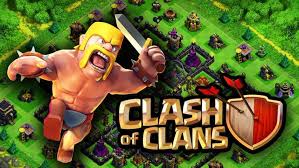
One of the standout features of Clash of Clans is Clan Wars, which introduces a social element to the game. Players have the option to either form their clans or join existing ones, leading to thrilling Clan Wars against various groups. Being part of a clan opens up exciting new opportunities for combat while significantly enhancing the strength of your home base. Members can request reinforcements from friends at any time, and seasoned players within the clan can provide stronger troops. These reinforcements are invaluable for both attacking enemy villages and defending one’s territory.
As players successfully conquer opponents, they are rewarded with bonuses such as trophies, elixir, and gold, further motivating them to strategise effectively in this dynamic gaming environment.
Minecraft
Minecraft stands out as a quintessential sandbox construction game, leading the genre with its unique charm. One of its most striking characteristics is the nostalgic pixelated graphics that harken back to simpler times. Initially launched for Windows PCs in 2011, the game quickly expanded to various platforms, including mobile devices running iOS and Android. What sets Minecraft apart is the boundless freedom it offers players; you can unleash your creativity without limitations. Whether it’s erecting grand castles, demolishing urban landscapes, engaging in battles, or embarking on thieving escapades, the possibilities are endless.
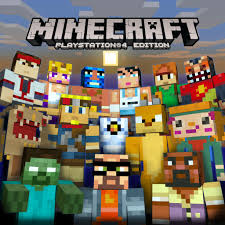
This extensive creative freedom contributed significantly to its rapid rise in popularity right after its debut. The game’s appeal is further enhanced when players collaborate; together, they can construct not just cities but entire continents! This social aspect adds an addictive quality to the experience. Without any designated leaders, players naturally gravitate towards one another, forming communities and pooling resources for mutual benefit. They band together to conquer new lands and fend off lurking monsters that threaten their survival during nighttime.
Moreover, Minecraft’s social dynamics bring an additional perk: showcasing your creations to fellow gamers. Suppose you happen to be away from a server for a few days and return later. In that case, you’re often greeted by awe-inspiring developments—settlements that have flourished and evolved in your absence, thanks to the collaborative efforts of other players.
Animal Crossing
The Animal Crossing series has a rich history that dates back to its debut on the Nintendo 64 in 2001. Players were immediately drawn to its captivating concept, which has since evolved into one of the most iconic gaming franchises. From the moment New Horizons was announced, it was clear that it was destined for great success. What sets Animal Crossing apart from other games is its unique blend of influences. At the same time, the developers drew inspiration from the Japanese series Harvest Moon and incorporated elements reminiscent of The Sims, they ultimately crafted a distinctive experience all its own.
At its core, Animal Crossing serves as both a social life simulator and a sandbox game infused with farming mechanics. A key feature of its gameplay is real-time synchronisation, where the in-game time mirrors that of the natural world—day transitions reflect actual daylight hours, seasons change in tandem with nature’s cycles, and everyday moments can transform into festive occasions.
On November 21, 2017, the mobile adaptation known as Pocket Camp was launched. In recent times, much like Fortnite has become a social hub for gamers and non-gamers alike, Animal Crossing has emerged as a virtual gathering place where friends can connect and unwind together. This trend gained significant momentum during the Covid-19 lockdowns when many sought new ways to maintain social ties in an era where physical distancing became increasingly commonplace.
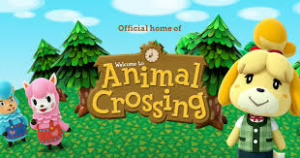
Pokemon GO
Launched in 2016, Pokémon GO quickly became a groundbreaking game that allows players to capture whimsical Pokémon creatures in the real world through augmented reality. What sets it apart from other socially interactive games is its emphasis on real-life interactions, encouraging players to connect face-to-face rather than just online. The core objective for players revolves around discovering, evolving, and training their Pokémon while also competing for control over various locations like towers and gyms. Since the game integrates with Google Maps, players are required to explore their surroundings by walking or using alternative modes of transport such as bicycles, skateboards, or scooters.
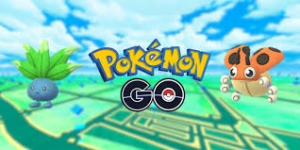
In late spring of 2018, a significant update introduced a new social feature enabling users to send gifts to friends and invite them for collaborative raids. This change led to an impressive surge in engagement, with 2.2 billion gifts exchanged among users within just three months. In response to the challenges posed by the COVID-19 pandemic, developers made further adjustments to gameplay mechanics, allowing players to catch Pokémon from the comfort of their homes. Additionally, new virtual social features were announced that facilitate communication between friends while they remain indoors. These enhancements aim to foster teamwork during virtual campaigns and enable collaborative raid battles without needing to leave home.
Coin Master
Coin Master presents an intriguing twist on traditional slot machines, offering a more immersive gaming experience. At the heart of this game is a classic three-reel slot machine, with each reel segmented into six distinct sections that represent various game elements: coins, money bags, energy capsules, hammers, shields, and pigs. What sets Coin Master apart is its social gameplay aspect; players construct villages and progress through levels by disrupting the efforts of others who have amassed substantial unspent coins—referred to as coin masters. Notably, players cannot opt out of these competitive interactions since they are dictated by the outcomes generated on the slot machine. This unique feature distinguishes Coin Master from typical mobile casual games. By February 2021, it had achieved over 100 million downloads. The developers also promote social connectivity by encouraging players to link their Facebook accounts, providing additional rewards as an incentive for doing so.
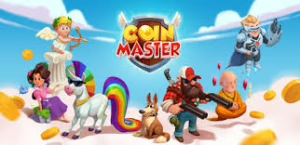
Homescapes is an engaging three-in-a-row puzzle game where players embark on the mission of revitalising a dilapidated house through various mini-games. As you solve puzzles, you unlock additional levels and tasks that contribute to the overall renovation process. The game intertwines its matching mechanics with a captivating narrative centred around Austin, a butler who returns to his childhood home only to find it in disrepair. Faced with the prospect of his parents selling the estate, Austin resolves to restore it instead, and he needs your assistance to achieve this goal.
To enhance the experience, players can join teams that offer social features such as collaborative events where extra rewards await team participants. Team members can also support each other by sharing lives, chatting, and competing in friendly challenges. A unique aspect of the game is the Help Your Teammate feature, which allows players to assist one another by progressing through challenging levels together. Moreover, newcomers who sign up via Facebook are welcomed with a bonus of 1,000 coins to kickstart their journey in this delightful world of home restoration and puzzle-solving adventures.
Township
Released in 2013 by Playrix, Township has established itself as a quintessential farming simulation game. Players manage a farm that they can enhance and expand over time. The gameplay revolves around planting crops and tending to livestock, which yields various products like vegetables for sale and milk for delivery to customers. In exchange for their efforts, players earn virtual coins that can be used to acquire additional structures, upgrades, and other enhancements.

While the overall progression of the game follows a set path, players have the freedom to choose where to invest their resources and which areas of their farm to develop further. Initially tailored for social media platforms like Facebook, Township incorporated social elements from its inception. By 2016, it introduced features allowing players to make friends, join cooperative groups (co-ops), assist one another, and engage in special events. A notable event is the Regatta—a competitive tournament where players form clans, tackle tasks together, and vie against each other for rewards.
Yatzee with Buddies
In 2015, Scopely and Hasbro introduced a mobile dice game called Yahtzee With Buddies, inspired by the beloved family board game Yahtzee. The developers emphasised the importance of social interaction within the game, mirroring how families and friends gather around a dinner table to enjoy each other’s company. In today’s world, where social distancing has become a norm, these social features have gained even greater significance. The latest iteration of Yahtzee With Buddies allows players not only to roll the dice with their friends but also to engage with random opponents from all over the world. Moreover, players can dive into the exciting Yahtzee Survivor mode, which presents real-time competitive challenges that come with rewards. The new Social Buddies system enhances this experience further by enabling players to chat with friends and issue challenges directly.

Merge Dragons
Merge Dragons is an engaging puzzle adventure where players embark on a quest to heal a magical serpent with the assistance of dragons. This game offers a fresh and enhanced take on the classic three-in-a-row genre, featuring gameplay set in a vibrant 3D environment rather than the traditional 2D format. One of its standout features is the ability to freely rearrange objects across the game board, adding an extra layer of convenience and strategy.
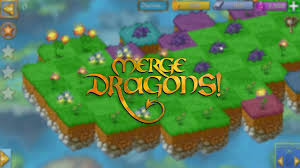
Additionally, Merge Dragons incorporate a social element known as Dens, which allows players to connect with up to 30 others to chat, share their progress, and offer helpful advice. There are three distinct types of Dens: some are designed purely for social interaction, others combine socialising with gameplay, and some focus solely on gaming. Members of these Dens can pool their combined Stars and Dragon Power within the game. However, unlocking this feature requires accumulating a specific amount of Dragon Power. Players also have the option to create their unique Dens for their friends and fellow players.
Candy Crush Saga
Candy Crush Saga, developed by the Swedish gaming company King, is a captivating match-3 puzzle game that challenges players to progress through various levels by strategically rearranging colourful lollipop candies. The objective is to align three or more candies in a row, which can lead to combinations that are both intricate and rewarding. Initially launched on Facebook in April 2012 with just 65 levels, the game quickly gained popularity. By November of the same year, mobile versions for iOS and Android were introduced, allowing users to synchronise their gameplay with their Facebook accounts.
Over the next few years, from November 2012 to September 2016, approximately 2,000 additional levels were added to keep players engaged and entertained. A significant shift occurred on November 17, 2017, when Candy Crush Saga adopted a Freemium model for distribution. This innovative approach was one of the first instances where a mobile game integrated social features into its design; players could easily track their friends’ progress on Facebook and see how they stacked up against each other in terms of levels completed.
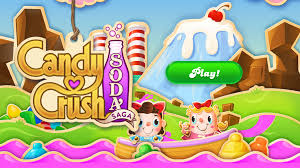
Sebastian Knutsson, one of King’s co-founders, noted that creating a mobile version aimed at fostering social interactions was crucial for maintaining player interest. Their strategy paid off when Candy Crush Saga received accolades for its engaging gameplay; on January 9, 2019, it won two awards at the 9th International Mobile Games Awards: Best Social Game and Best Gameplay. The game’s blend of challenging puzzles and social connectivity has solidified its place as a beloved classic in the realm of mobile gaming.
Incorporating social features into your mobile app using Maxthon can significantly enhance user engagement and retention. Here’s a step-by-step guide to help you through the process:
Transform Your Mobile App with Maxthon
1. Define Your Social Goals: Start by identifying what social features will benefit your app. Consider functionalities like user profiles, messaging systems, or social sharing capabilities.
2. Utilize Maxthon’s SDK: Explore the Maxthon Software Development Kit (SDK). The SDK provides tools and resources tailored for easy integration of social features into your app.
3. Implement User Authentication: Allow users to sign in using their existing social media accounts. Integrating platforms like Facebook or Google simplifies the login process and encourages user participation.
4. Incorporate In-app Messaging: Facilitate communication among users by adding an in-app messaging feature. This could include direct messaging or group chats, fostering community interaction within your app.
5. Enable Content Sharing: Provide options for users to share content directly from your app to their social networks. Ensure that this feature is easy to access, increasing its usability.
6. Design User Profiles: Create personalised user profiles that showcase achievements, preferences, and app activities. Consider allowing profile customisation for a more engaging experience.

7. Add Activity Feeds or Timelines: Implement activity feeds where users can post updates, share their thoughts, or interact with each other’s content. This promotes a dynamic environment akin to popular social platforms.
8. Encourage User-generated Content: Motivate users to create and share their content within the app, such as photos or reviews. Highlighting top contributions can further boost engagement.
9. Engage with Notifications: Use push notifications to keep users informed about messages, comments, or any activity relevant to them socially within the app.
By following these steps with Maxthon’s framework, you can successfully integrate vibrant social features into your mobile application that foster community and enhance user experience.
